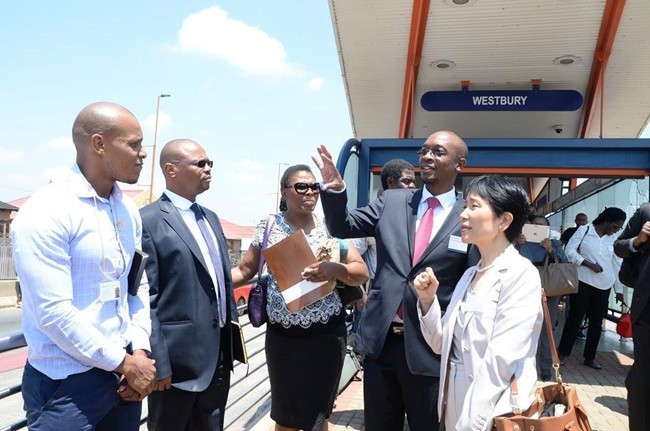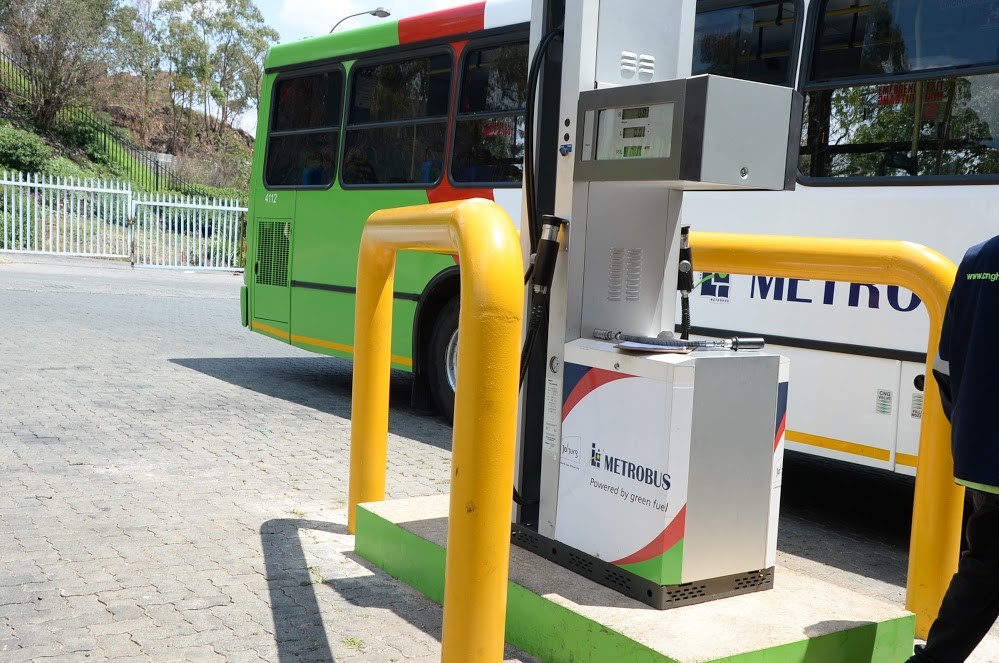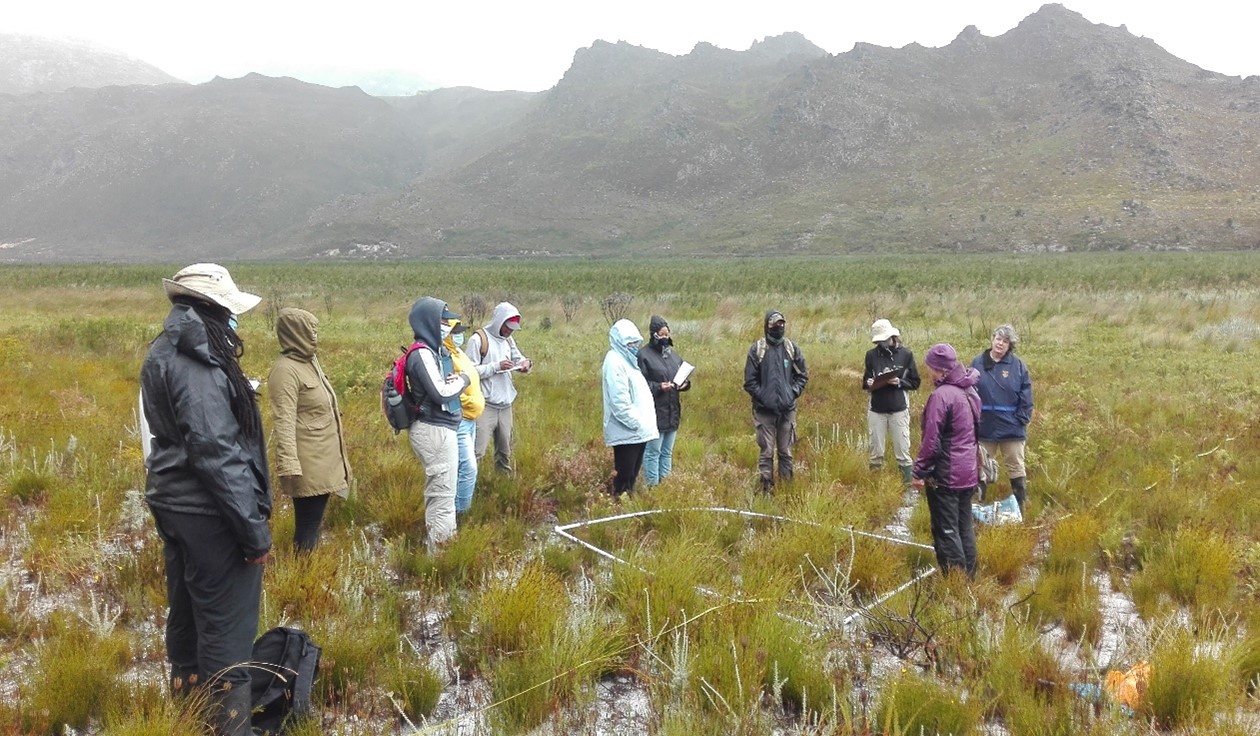Global Environment Facility (GEF)
The DBSA was accredited as a National Project Agency for the Global Environment Facility in 2014. Following the accreditation, the Bank signed a Memorandum of Understanding with the GEF Secretariat. The MOU commits the DBSA as an agency to follow all GEF Policies and establish the conditions in which the Bank can seek resources from the GEF Council for the preparation and implementation of projects.
Accreditation of the DBSA as a GEF agency has placed the DBSA at the global arena in terms of providing financial assistance to environment and climate change projects. This fits into the DBSA’s strategy and focus area of Energy/Environment. As a GEF agency, the Bank is further posed at an opportune position to assess funding and leverage funds from other global sources. The GEF Accreditation process has also provided an opportunity for DBSA to identify and close gaps in its fiduciary, social and environmental safeguards, a process that has enhanced its image and built confidence with stakeholders, including other international partners.
About the GEF
The Global Environment Facility is a partnership for international cooperation where 183 countries work together with international institutions, civil society organizations and the private sector, to address global environmental issues. Since its inception, the GEF has provided more than $12.5 billion in grants and leveraged over $58 billion in co-financing for thousands of projects in developing countries. The World Bank serves as the trustee of the GEF. For more information, please see the Global Environmental Facility.
Funding Criteria
Funding resources from the GEF are allocated to South Africa through the System for Transparent Allocation of Resources and utilised through the GEF National Focal Point, the Department of Environmental Affairs. The Department has the responsibility to ensure that these resources are utilised for funding projects/programmes that are in line with national strategic priorities. The Department further programmes GEF allocated resources through a transparent approach, involving all stakeholders. The DBSA, in line with its comparative advantage as a GEF agency, is responsible for the preparation and management of GEF funded projects. DBSA is also responsible to the GEF Council for use of GEF resources and activities carried out therewith.
To be considered for funding, a project proposal has to fulfil the following criteria:
- It is undertaken in South Africa as a GEF funding eligible country. The project also has to be consistent with national priorities and programs. To this effect, projects are endorsed by the country’s GEF Operational Focal Point (OFP), the Department of Forestry, Fisheries and the Environment (DFFE).
- It addresses one or more of the following GEF Focal Areas (and cross-cutting issues and programmes), improving the global environment or advance the prospect of reducing risks to it:
- Biodiversity
- Climate Change (Mitigation and Adaptation)
- Chemicals
- International Waters
- Land Degradation
- Sustainable Forest Management / REDD+
- Ozone Layer Depletion
- It is consistent with the GEF strategy
- It seeks GEF financing only for the agreed-on incremental costs on measures to achieve global environmental benefits
- It involves the public in project design and implementation.
- It is endorsed by the government of South Africa.
- It is co-funded
In addition to the GEF funding criteria, projects should align to the DBSA’s fiduciary, social and environmental safeguard standards requirements
Funding beneficiaries
All interested parties whose projects meet the funding criteria can apply for GEF resources. Government organisations, private sector, community-based organizations and non-governmental organizations have the opportunity to apply for GEF resources.
Application Procedure
Project proponents are advised to discuss their project concepts with the DBSA as a project agency which will act as a channel between the applicant, the DFFE and the GEF for the project approval process. In assessing projects for GEF funding, the programming process of the DFFE will be followed.
DBSA GEF project portfolio
Since its accreditation in 2014, the DBSA has worked with partners to develop and implement several GEF funded projects
- Equity Fund for the Small Projects Independent Power Producer Procurement Programme
- Cities-IAP: Building a Resilient and Resource-efficient Johannesburg: Increased Access to Urban Services and Improved Quality of Life
- Accelerating the shift towards electric mobility in South Africa
- Unlocking Biodiversity Benefits through Development Finance in Critical Catchments
- Environmentally Sound Management and Disposal of Polychlorinated Biphenyls in the Republic of South Africa
- Enabling Activities to Review and Update the National Implementation Plan for the Stockholm Convention on Persistent Organic Pollutants
- Leapfrogging South Africa’s markets to high-efficiency LED lighting and high efficiency distribution transformers

Source: City of Johannesburg: Launch of the GEF funded City of Johannesburg project.
The former mayor Parks Tau invited the former GEF CEO (in the picture with the mayor)
or the launch of the project. The GEF project provides funding to aspects of the Corridors
of Freedom initiative of the City of Johannesburg.

Source: City of Johannesburg: GEF funds will assist the City of Johannesburg to pilot
a biofuel plant that will reduce emissions from the Robinson Deep landfill site, provide
fuel to the City’s bus fleet.

Source: Dr S. Braid: field work in demonstration site, the Berg-Breede catchment for
GEF-funded project that aims to develop policy and capacity incentives for mainstreaming
iodiversity and ecosystem values into development policy and finance.
Enquiries
Please send enquiries to the DBSA GEF coordination unit at DBSAGEF@dbsa.org
Audited Annual Financial Statements
Audited Annual Financial Statements - 30 June 2016
Audited Annual Financial Statements - 30 June 2017
Audited Annual Financial Statements - 30 June 2018
Audited Annual Financial Statements - 30 June 2019
Audited Annual Financial Statements - 30 June 2020
Funding Agreements
Funding Agreement - SANBI - Feb 2018
Funding Agreement - City of Johannesburg - May 2018
Africa Institute Grant agreement - DBSA NIP 2018
Africa Institute Grant Agreement - PCBs PPG 2018
Africa Institute Grant agreement - PCBs 2021
Documents
DBSA Environmental Appraisal Framework Summary
DBSA Environmental and Social Safeguard Standards 2022
DBSA Environmental and Social Management Framework and Plan Annexure 6, 12 September 2022
Related searches
Independent Grievance Redress Mechanism
How sustainable infrastructure contributes to gender mainstreaming in South Africa
How gender mainstreaming in South Africa can improve infrastructure projects
DBSA’s contribution towards a green economy in South Africa
DBSA Launches Green Bond
What DBSA is doing to help SA and neighbouring countries address climate change
How DBSA strives to improve energy development in South Africa




